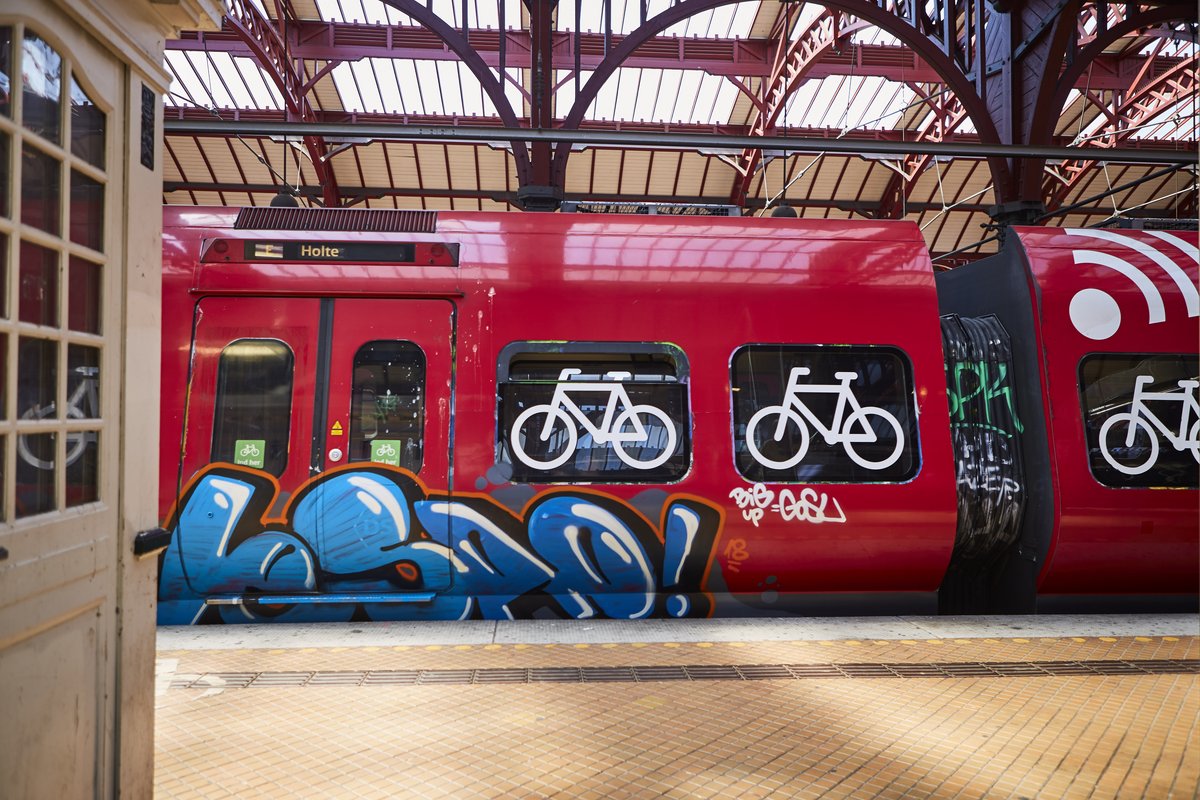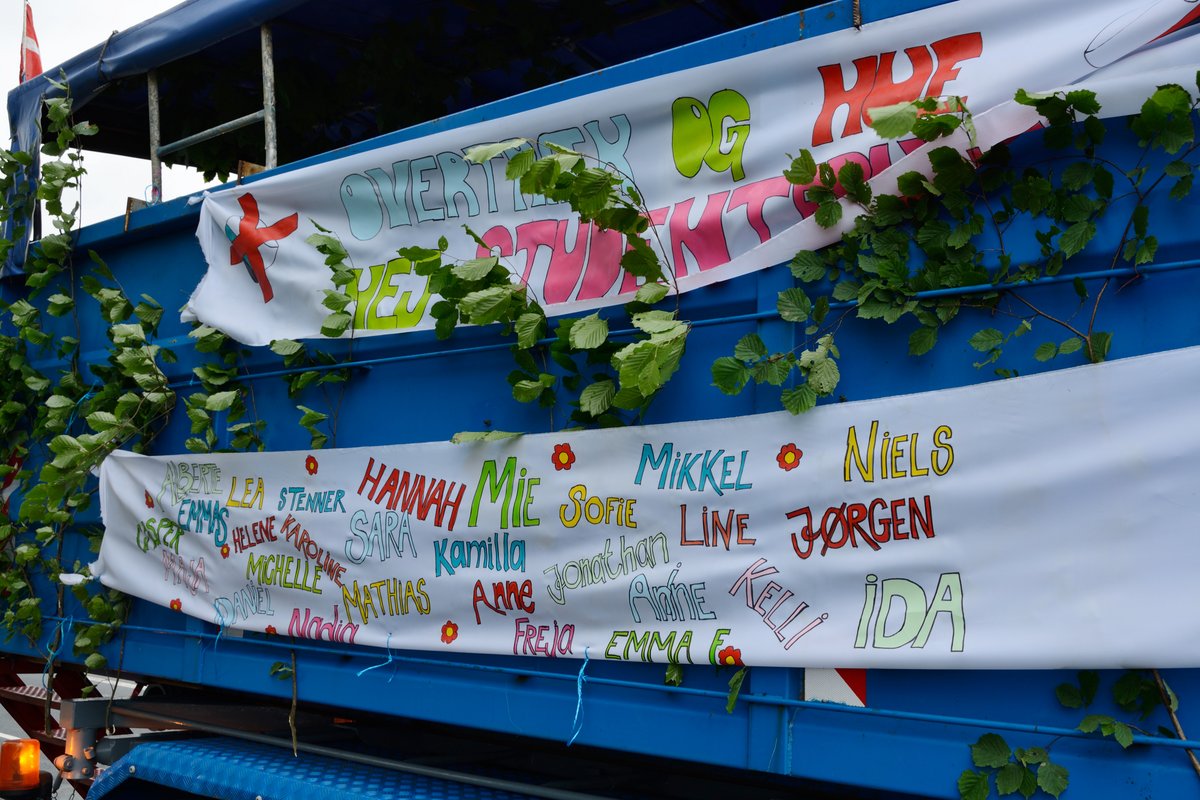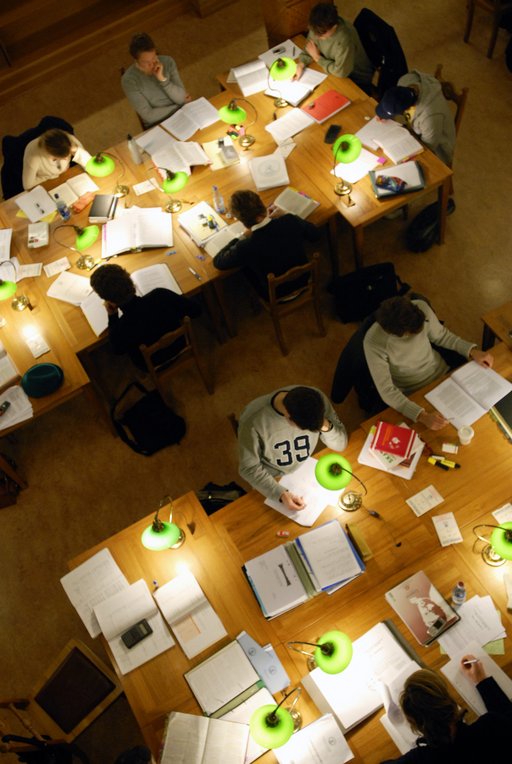Aspirations of young women in Denmark
For high school students, keeping your options open can mean hard work and added stress - in Denmark as well as elsewhere.
Summary: Research within sociology of the future shows that young women expect a lot from themselves and tend to internalise individual responsibility for future success. This can be the case for those who are very driven towards a specific goal or career ambition. But keeping their options open and navigating their everyday studies and the structure of the education system to ensure freedom in the future can also be arduous and lead to young women putting a lot of pressure on themselves.
Amira is a student in an upper secondary school, located in one of the suburbs surrounding Copenhagen in Denmark. We interviewed Amira six times over a three-year period as part of a longitudinal study of how young women develop aspirations. During one interview, Amira described an ambivalence, indeed, in her words a ‘contradiction’. On the one hand, she conveys her ambitious goal of not ‘slacking’ and striving for the high grades required for certain higher education courses. Conversely, however, she also voices a desire not to choose or commit to any specific aspirational future, instead emphasising the importance of ‘expanding her horizon’ and not being ‘locked’ into a particular path. Confronted with the inherent contradiction in her statements, she utters the following words:
It doesn’t really make sense. … It’s like I’m fighting towards nothing. (Amira, upper secondary school student).
Sociology of the future is a research approach where researchers seek to study how social actors in the present work to produce, make, plan, envision, hope, and dream about the future, despite the fact that the future is generally unknowable. Particularly with inspiration from the affective turn and theories associated with New Materialities, recent work also tackles difficult questions about how the future, and its uncertainty and crises, may also already affect the present in different and often surprising ways.
When engaging with her future, Amira finds ‘nothing’, or rather the absence of something, to fight for or aspire to. This fight for an open future sometimes feels strange and as if something ‘doesn’t really make sense.’ Why structure your whole life around hard work and strive for educational performance when there is no end goal except for lots of possibilities? According to Amira, however, this is exactly what you feel like you are supposed to do in upper secondary schooling.
Amira’s reflections were hardly unique. Between 2019 and 2023 we followed 16 young Danish women through their three years of upper secondary schooling (gymnasium). We interviewed them every six months, trying to understand how young women make choices about what they want to study after school. In almost all of the 82 interviews this amounted to, the idea of an array of future possibilities was a strong force that led these young women to carefully plan their everyday life and work hard in order to achieve the best possible educational results.

Avoiding a specific path
The informants of this study were reluctant to specify any particular plans for the future. Instead, they expressed aspirations to ‘have as many options as possible’ (Sia) and to ‘maintain the possibility for – or postpone the choice of – real or final [tertiary] education’ (Luna). Rather than becoming fixed on particular career trajectories, the informants seemed more attached to different possibilities and openness. Ann said:
"I think I make choices about them [potential future educational courses] by making sure not to tie myself to anything, so that I don’t have to become one particular thing. For example, I don’t want to become a nurse, because then I would have to become a nurse. And I think that’s too limited. I want something more open – with lots of possibilities. So, if I feel like changing direction somewhere along the line, I can."
This concern for not getting stuck in a fixed trajectory informed choices and organized the everyday lives of these young women. They would avoid subjects that narrowed their future options or that were not necessary in order to keep different opportunities open. Moreover, they would become excited about subjects not only because of how fun and interesting they were, but because of how they could open doors to many different educational routes (such as e.g., mathematics). Thinking about and building a future is not done in pursuit of a certain path in order to arrive at a particular future destination, but the creation and protection of a space full of potential.
In Denmark, gymnasium generally lasts for three years and starts at the age of 16. There are many different types of high school, but when we refer to ‘gymnasium’ here, we are referring to the ‘stx‘ or the three-year academic course which results in a ‘Almen studentereksamen’ (general matriculation exam). For this course, each student chooses a ‘track’ (usually two subjects) which they concentrate on for 30% of their time, the rest of the time being divided amongst the other subjects on the national curriculum.

Keeping your options open is hard work
It may sound quite easy, but in fact it is hard work to keep your future open. If you want all the freedom to choose by the end of upper secondary schooling, you need to always perform well and get top grades. Indeed, many of the informants of this study would be highly invested in and plan well for all tests and exams. Their attachment to an open future seemed to intensify the present by making every decision, every test, or exam an event that may risk compromising the future.
It also makes any decision in the present quite intense and ridden with doubt about whether you are making a decision that will limit possibilities in the future. Since you do not know what you intend to do ultimately, you can never be sure whether you are making the right decision, or whether this or that grade will suffice for whatever occupation you might want to do.
To strive to keep all possibilities open is thus not to postpone all worries about the future until later, but rather to invite worries about the future into the fabric of your everyday life. It may bring you joy and excitement to think about all the exciting things you can do. However, research has also shown that hopes for the future are ridden with contradictory emotions such as optimism, excitement, anxiety, and concern.
The findings of this study resonate with studies from other Scandinavian as well as other countries such as e.g., the UK or Australia that have also shown how particularly young women expect a lot from themselves and tend to internalise individual responsibility for future success. However, whereas much research has focused on how future-making is conditioned, restricted, and narrowed down by structural limitations, this study is unique in illuminating how keeping the future open may also constitute intense labour ridden with contradictory affects, where feelings of enhancement and diminishment or excitement and disappointment are often co-present.
The paradoxical bind of open futures
While the idea of an open future may to some degree help to produce a space in the present in which one does not have to worry, our study found that it also implies that the present is organised and bound in particular ways. Efforts to keep the future open do more than that; they also limit possibilities, for example by discouraging the pursuit of a narrow educational interest. Moreover, there is a risk that the present is turned into something that is only perceived as valuable when it contributes to sustaining possibilities in the future. Given that not only the future as such but also one’s aspirations, dreams, and preferences in the future are unknown or at least uncertain, it becomes extremely difficult to know, in the present, whether one’s actions and performances are good enough. Striving to keep the future open is to also put a lot of pressure on oneself in the present.
As Amira, experienced: A fight towards nothing can be hard-fought.
Sociology of the future can help us understand what we are going through in the present.
This article is published in response to readers' interest in stress and mental health issues in young people.
The paper referred to in this article is Justine Grønbæk Pors and Sharon Kishik, 'Future-Making in an Uncertain World: The Presence of an Open Future in Danish Young Women’s Lives', Sociology 57, 2 (2023), pp. 398–414.
Further reading:
- Ben Anderson, ‘Becoming and Being Hopeful: Towards a Theory of Affect’, Environment and Planning D: Society and Space 24, 5 (2006), pp. 733–752.
- Jessica Ringrose, ‘Successful girls? Complicating post‐feminist, neoliberal discourses of educational achievement and gender equality’, Gender and Education 19, 4 (2007), pp. 471–489.
- Julia Brannen and Ann Nilsen, ‘Young People's Time Perspectives: From Youth to Adulthood’, Sociology 36, 3 (2002), pp. 513–537.
- Kim Allen, ‘Top girls navigating austere times: interrogating youth transitions since the ‘crisis’’, Journal of Youth Studies 19, 6 (2015), pp. 805–820.
- Lauren Berlant, Cruel Optimism (Durham: Duke University Press, 2011).
- Rachel Thomson and Jeanette Østergaard, ‘Open-ended transitions to adulthood: Metaphorical thinking for times of stasis’, The Sociological Review 69, 2 (2020), pp. 434–450.
- Sam Sellar, ‘‘Unleashing aspiration’: The concept of potential in education policy’, The Australian Educational Researcher 42, 2 (2015), pp. 201–215.


